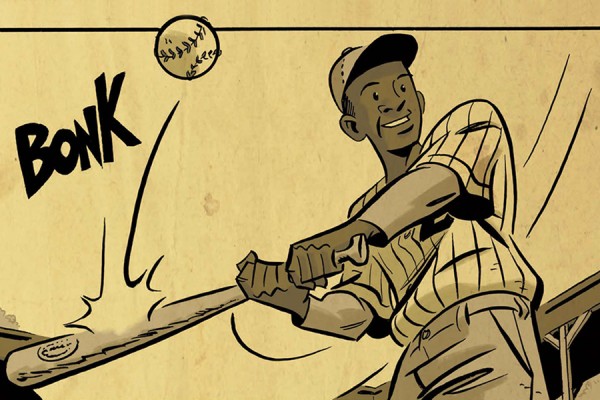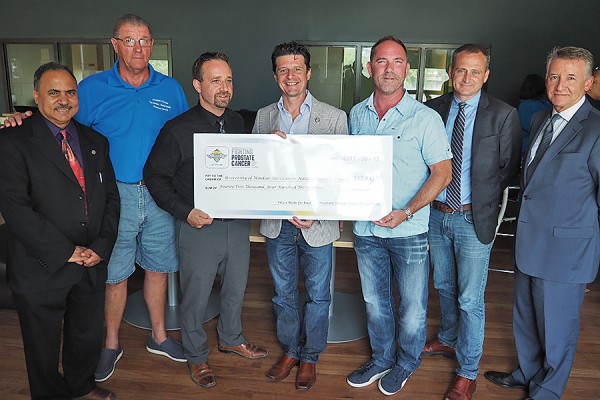 Charu Chandrasekera is the founding executive director of the Canadian Centre for Alternatives to Animal Methods.
Charu Chandrasekera is the founding executive director of the Canadian Centre for Alternatives to Animal Methods.
Each year millions of animals are used in Canada for medical research and toxicity testing, but a growing body of scientific evidence points to the difficulties of treating humans like 70-kg mice.
After years of using rodents to conduct heart disease research, Charu Chandrasekera began to question the value of using animals as stand-ins for humans. She lost her fervour for animal research after her father suffered a heart attack, bringing home to her the realization that human relevance must be at the forefront of biomedical discoveries.
Dr. Chandrasekera’s quest to find more effective, human-centered research methods led her to develop the Canadian Centre for Alternatives to Animal Methods (CCAAM) at the University of Windsor, the first of its kind in the country.
“Despite decades of extensive research conducted at enormous expense, the rate of congruence between animal models and the human condition is at an all-time low,” says Chandrasekera, CCAAM’s inaugural executive director. “We do not fully understand human disease mechanisms and 95 per cent of drugs that test safe and effective in animals fail in human clinical trials.”
Given the tremendous differences in the way animals and humans regulate biological processes, CCAAM’s mandate is to use only human-based biomaterials and methods, with the goal of ultimately ending the use of experimental animals. From the Americas to the Far East, many countries boast alternatives centres — CCAAM will ensure that Canada is at the forefront of cutting-edge innovation in humane and human-centered research.
The initial focus will be on emerging methods using human-derived artificial organs, called organoids, and interconnected organoid models that mimic human physiology and allow the study of human-specific biological processes without the use of animals.
In conjunction with its research, Chris Houser, dean of science, plans to create undergraduate and graduate academic programs in animal replacement science.
“CCAAM is an amazing opportunity for the University of Windsor and is a watershed moment for health research in Canada,” Dr. Houser says. “The University of Windsor will be a leader in alternatives research and validation of non-animal methods, and the associated academic programs mean we will be training the next generation of scientists and health professionals in alternatives to animal methods.”
Through its subsidiary, the Canadian Centre for the Validation of Alternative Methods, CCAAM will work side-by-side with regulators, primarily Health Canada, and international consortia to expedite the development, validation, and acceptance of alternative toxicity testing methods in Canada.
With a multitude of already established connections, the centre’s mandate includes plans to expand and sustain local, national, and international partnerships with academic, industry, government, and public sectors.
“Given the diverse spectrum of alternatives research and the cultural change required to promote replacement, it is critical to build capacity and momentum through interdisciplinary, multi-centre, transformative partnerships extending beyond UWindsor premises,” Chandrasekera says.
“For spurring scientific progress, an interconnected community is key — CCAAM will be the hub that brings the academic, industry, government, and public sectors together to advance humane and human-centered science in Canada.”
In addition to Chandrasekera, the CCAAM leadership includes UWindsor biology professors Phillip Karpowicz as scientific director and Andrew Hubberstey as academic director. The centre will host an inaugural conference October 2 and 3.
K. W. Michael Siu, vice-president, research and innovation, says CCAAM is essential to the University of Windsor’s strategic research plan grand challenge to help build viable, healthy and safe communities.
“The University of Windsor has become a vehicle for the cross-transfer of knowledge, technology, and expertise, traversing exciting new terrain and opening new vistas,” says Dr. Siu. “CCAAM coincides with that vision and will place the University of Windsor at the cutting edge of human-centered research, and help building a viable, healthy and safe community.”







